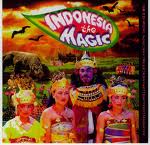When Indonesian nationalist took independence from Dutch rule in 1928, it has chosen Bahasa as the national language out of the countless ethnic groups with different dialects and culture that Indonesia has.
They have good reason to do this, they need to promote among themselves civic unity which is important in forging a national unity and identity as a nation.
Though small percentage of educated Indonesians spoke Dutch, Bahasa is the preferred language of the Indonesian intellectuals.
But with Indonesia’s democratization in the past decade, experts say, English has replaced Dutch. Educational regulations were loosened, allowing Indonesian children to attend private schools that did not follow the Indonesian curriculum and which has offered the English language as their medium of instruction.
Private schools, the more expensive ones usually employ native English speakers to teach English according to the Association of National Plus Schools, an umbrella organization for private school.
With the popularity of English, Indonesia’s linguistic legacy has been threatened as growing numbers of wealthy and middle class Indonesians avoid public schools where Bahasa remains the main language but English taught poorly.
For some Indonesians, English has been associated and tied to one’s social standing and Bahasa has been treated by them as an inferior language.
With such an unfavorable development, the Indonesian government recently announced that it would require all private schools to teach Bahasa, the nation’s official language to its students by 2013.
To the majority of Indonesians, the government’s move was laudable. “If we don’t regulate them, in the long run this could be dangerous for the continuity of our language,” stressed Mr. Suyanto like other Indonesian who uses one name. ” If this big country doesn’t have strong language to unite, it could be dangerous,” he further said.
